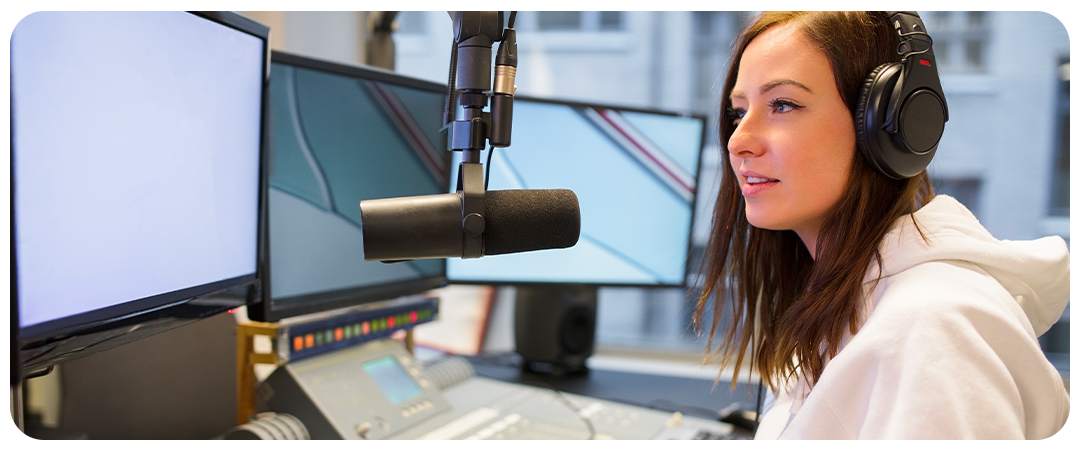
Despite the digital deluge, traditional and digital radio remains a potent force in Germany. Its reach, particularly during commute times, offers unparalleled access to our target demographic. Business leaders often tune in for news updates during their drive, investors track market movements via business segments, and affluent travelers seek cultural insights or relaxing soundscapes. The key is selecting the right channels – platforms that offer credibility and align with the interests of this high-value group. Effective Radio Advertising in Germany leverages this captive audience environment.
Pinpointing Your Target: Top 5 Radio Stations in Germany
Selecting the right station is paramount. Based on audience profiles, programming focus, and reach, here are my top five recommendations for targeting business leaders, investors, and affluent travelers in Germany.
- Deutschlandfunk (DLF): As Germany's national public information radio, DLF is a cornerstone for reaching an informed, educated, and influential audience. Its programming is rich in news, in-depth political analysis, business reports, and cultural discourse. Advertising here places your brand in a highly credible environment, ideal for reaching decision-makers and those keenly interested in current affairs. Its national reach ensures broad coverage.
- Deutschlandfunk Kultur (Dlf Kultur): Sister station to DLF, this channel delves deeper into culture, arts, and societal debates. It attracts a sophisticated, culturally engaged audience, often overlapping with affluent demographics and global travelers seeking intellectual stimulation. Sponsorships of specific cultural segments can be particularly effective here.
- hr-info (Hessischer Rundfunk): For targeted Local Radio Advertising, particularly focusing on Germany's financial heartland, hr-info is indispensable. This regional public station for Hesse (including Frankfurt) offers rolling news, traffic, weather, and crucially, business and stock market updates. It's a prime channel for reaching bankers, investors, and business leaders in the Rhine-Main region, especially during peak commute times.
- B5 Aktuell (Bayerischer Rundfunk): Similar to hr-info but covering Bavaria (including Munich), B5 Aktuell provides continuous news and information. Bavaria is another major economic powerhouse in Germany, making B5 Aktuell essential for regionally focused campaigns targeting business leaders and investors in the south. The format ensures high listener frequency for those seeking updates.
- Klassik Radio: A national private station blending classical music with lifestyle, culture, and news segments. Klassik Radio typically attracts an older, affluent, and educated audience. It offers a different environment – less news-intensive than the public information stations but potentially effective for reaching established leaders and affluent individuals in a more relaxed listening context. Consider placements around lifestyle or finance-related segments.
Strategic Considerations for Your German Radio Campaign
Simply being on the air isn't enough. How you advertise matters.
- Ad Formats: While the standard Radiospot Deutschland (spot ad) is common, consider sponsorships of business news segments or cultural programs for deeper integration and implied endorsement. Live reads by respected station hosts can also build significant trust, though they come at a premium.
- Pricing Models: You'll encounter options ranging from Cost Per Spot (CPS) to package deals. Packages often provide better value for frequency, crucial for building brand recall. Programmatic audio buying is emerging, particularly for digital streams, offering more granular targeting but potentially less control over the specific environment compared to direct buys. Evaluate cost-effectiveness based on target reach and campaign goals.
- Targeting Techniques: Daypart targeting is essential – morning and evening commutes are prime time for reaching business leaders. Program format targeting (news, business, culture) ensures alignment with listener interests. Combining national reach (DLF, Klassik Radio) with strategic regional buys (hr-info, B5 Aktuell) allows for efficient coverage of key economic centers.
Identifying Unmet Needs: Opportunities in the German Market
There's potential in catering to niche interests within the broader target group. Consider sponsoring segments on sustainable investing, international business trends, or luxury travel. Many stations offer podcast versions of their shows or have dedicated digital streams; integrating your campaign across these platforms can capture listeners who consume audio on-demand. Furthermore, there's often an opportunity for brands to position themselves as thought leaders through sponsored interviews or expert talks on relevant business or cultural programs, moving beyond the traditional ad spot.
Effective Radio Advertising in Germany for this elite audience is achievable with a data-informed, strategic approach. By understanding the landscape, selecting the right stations, and employing suitable advertising techniques, you can successfully engage Germany's business leaders, investors, and affluent travelers.


